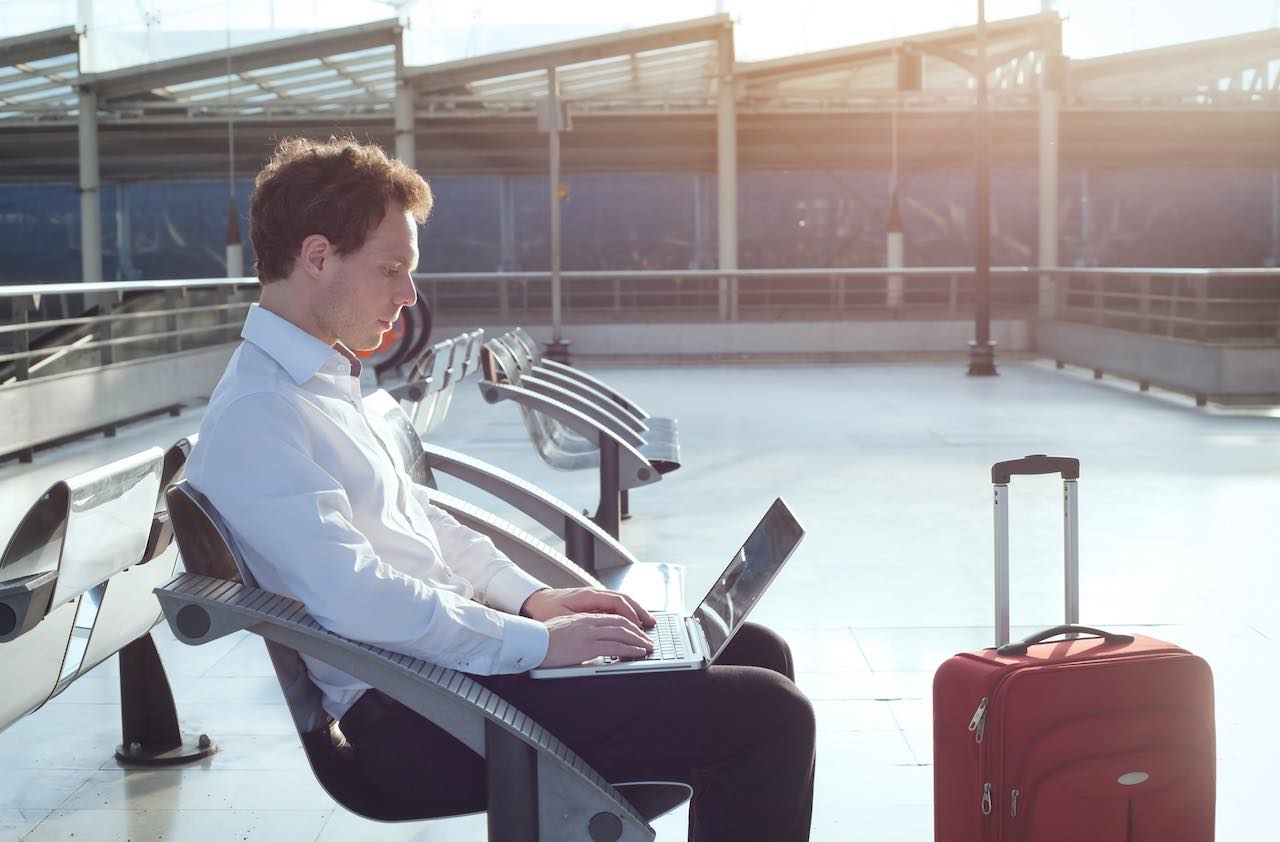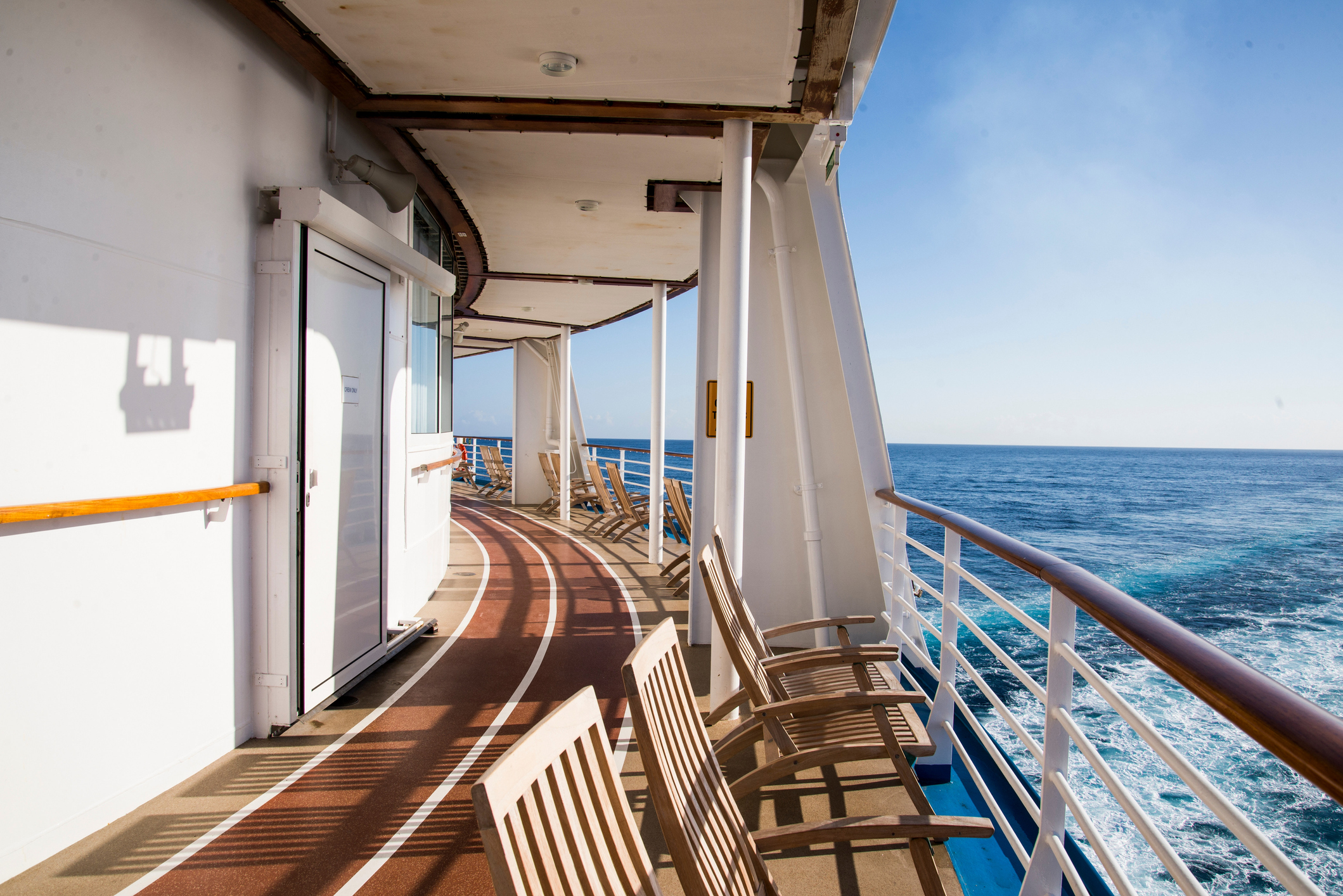Is it Better to Book Travel Directly or Use an Online Travel Agency?
Each has its merits, but what's the better way to pay?


Profit and prosper with the best of Kiplinger's advice on investing, taxes, retirement, personal finance and much more. Delivered daily. Enter your email in the box and click Sign Me Up.
You are now subscribed
Your newsletter sign-up was successful
Want to add more newsletters?

Delivered daily
Kiplinger Today
Profit and prosper with the best of Kiplinger's advice on investing, taxes, retirement, personal finance and much more delivered daily. Smart money moves start here.

Sent five days a week
Kiplinger A Step Ahead
Get practical help to make better financial decisions in your everyday life, from spending to savings on top deals.

Delivered daily
Kiplinger Closing Bell
Get today's biggest financial and investing headlines delivered to your inbox every day the U.S. stock market is open.

Sent twice a week
Kiplinger Adviser Intel
Financial pros across the country share best practices and fresh tactics to preserve and grow your wealth.

Delivered weekly
Kiplinger Tax Tips
Trim your federal and state tax bills with practical tax-planning and tax-cutting strategies.

Sent twice a week
Kiplinger Retirement Tips
Your twice-a-week guide to planning and enjoying a financially secure and richly rewarding retirement

Sent bimonthly.
Kiplinger Adviser Angle
Insights for advisers, wealth managers and other financial professionals.

Sent twice a week
Kiplinger Investing Weekly
Your twice-a-week roundup of promising stocks, funds, companies and industries you should consider, ones you should avoid, and why.

Sent weekly for six weeks
Kiplinger Invest for Retirement
Your step-by-step six-part series on how to invest for retirement, from devising a successful strategy to exactly which investments to choose.
It’s hard to beat the convenience of online travel agencies, such as Expedia and Priceline, when shopping for the cheapest airfare or choosing a hotel. OTAs not only aggregate flights, accommodations, rental cars and vacation packages but also let you compare options by price, user rating and other criteria. Sometimes they offer discounts and attractive package deals, too. But it doesn’t always make sense to book with an OTA.
When direct is better. For domestic travel, prices are similar when you book directly or through a third-party site, says Douglas Quinby, vice president of research at Phocuswright, a travel-industry research firm. But going to the source has benefits: It’s easier to compare fare options and bundled fees on an airline’s website, for example. Plus, third-party sites are not currently bound by the federal rule requiring U.S. airlines to give travelers 24 hours to hold or cancel a ticket. Many sites mention a similar window for canceling, but the policies are not always spelled out.
Hotel chains such as Hilton, Hyatt and Marriott offer small discounts to their loyalty members for reserving directly, and you usually have to book directly to earn rewards points. Plus, “there is a good amount of anecdotal evidence that hotels treat people better when they book directly,” says Pauline Frommer, editorial director of travel publisher Frommer’s.
From just $107.88 $24.99 for Kiplinger Personal Finance
Become a smarter, better informed investor. Subscribe from just $107.88 $24.99, plus get up to 4 Special Issues

Sign up for Kiplinger’s Free Newsletters
Profit and prosper with the best of expert advice on investing, taxes, retirement, personal finance and more - straight to your e-mail.
Profit and prosper with the best of expert advice - straight to your e-mail.
Travel forums and consumer review sites detail a slew of instances in which OTAs bungle customer service when things go wrong. Plus, changing or canceling your flight or itinerary can cost extra, and some smaller sites charge a service fee for booking. For example, Priceline adds $30 on top of the airline’s change fee if you need to modify your itinerary; CheapOair, Vayama and others slap on $100 or more. If you need to cancel a nonrefundable fare, credit may or may not be available through the airline. Southwest, Allegiant and many international budget airlines aren’t searchable on OTAs, so you need to look up their fares separately.
To cover your bases, use a meta-search engine, such as Kayak, to compare OTA rates with prices from the airlines, hotels and car rental companies, then weigh how much the savings mean to you.
When OTAs get the nod. If you’re planning an international trip, an online travel agency is a good way to simplify the booking process and find low rates. “The hotel market is more fragmented, and airfares are more competitive, so you will see a lot more variation in price,” says Quinby. OTAs often cobble together complex itineraries using multiple airlines in a way that would be difficult—and time-consuming—to replicate yourself.
If you’re not loyal to a certain brand, you may benefit from an OTA’s rewards program, such as the Hotels.com “free night” reward after you stay at eligible properties for 10 nights. You can also find good value using an OTA to bundle flights with hotels or cars, especially for popular destinations. Before you decide to buy, price each component separately to be sure you’re getting a good deal, and check for inflexible cancellation and change policies, such as nonrefundable rates. For an expensive, special vacation, you may feel more comfortable piecing the trip together yourself—or letting a traditional travel agent plan it.
Profit and prosper with the best of Kiplinger's advice on investing, taxes, retirement, personal finance and much more. Delivered daily. Enter your email in the box and click Sign Me Up.

-
 Here’s How to Stream the Super Bowl for Less
Here’s How to Stream the Super Bowl for LessWe'll show you the least expensive ways to stream football's biggest event.
-
 The Cost of Leaving Your Money in a Low-Rate Account
The Cost of Leaving Your Money in a Low-Rate AccountWhy parking your cash in low-yield accounts could be costing you, and smarter alternatives that preserve liquidity while boosting returns.
-
 I want to sell our beach house to retire now, but my wife wants to keep it.
I want to sell our beach house to retire now, but my wife wants to keep it.I want to sell the $610K vacation home and retire now, but my wife envisions a beach retirement in 8 years. We asked financial advisers to weigh in.
-
 Why It's Worth Booking a Winter Vacation
Why It's Worth Booking a Winter VacationTravel Smart In the early months of the year, travel demand dips — and so do prices.
-
 5 Ways to Save on a Trip to the 2026 Olympics in Italy
5 Ways to Save on a Trip to the 2026 Olympics in ItalyA guide to going to the Milan-Cortina 2026 Winter Olympics without breaking the bank.
-
 The Best (and Worst) Airlines for Flight Delays and Cancellations
The Best (and Worst) Airlines for Flight Delays and CancellationsWhich airlines should you book and which should you avoid if you want to make it to your destination on time?
-
 Four Luxury Spa Resorts for Well-Heeled Travelers
Four Luxury Spa Resorts for Well-Heeled TravelersWe hand-picked these U.S. luxury spa resorts for their serenity, amenities and dedication to the comfort of older travelers.
-
 Child-Free Cruises Perfect For Your Retirement Celebration
Child-Free Cruises Perfect For Your Retirement CelebrationHow to find a bespoke ocean or river vacation for adults. Many of these options are smaller, charming river cruises, expeditions, or niche experiences.
-
 Noctourism: The New Travel Trend For Your Next Trip
Noctourism: The New Travel Trend For Your Next Trip"Noctourism" is a new trend of building travel and vacations around events and plans that take place at night. Take a look at some inspiring noctourism ideas.
-
 My Husband and I Retired at 67 With $3.2 Million, But He's Frugal About Travel. How Can I Convince Him to Loosen Up?
My Husband and I Retired at 67 With $3.2 Million, But He's Frugal About Travel. How Can I Convince Him to Loosen Up?We asked financial planning experts for advice.
-
 Cruise Lines Sue to Block Hawaii’s New Climate Tourism Tax
Cruise Lines Sue to Block Hawaii’s New Climate Tourism TaxState Tax Your vacation to the Aloha State could come at a higher price tag next year. Here’s why.